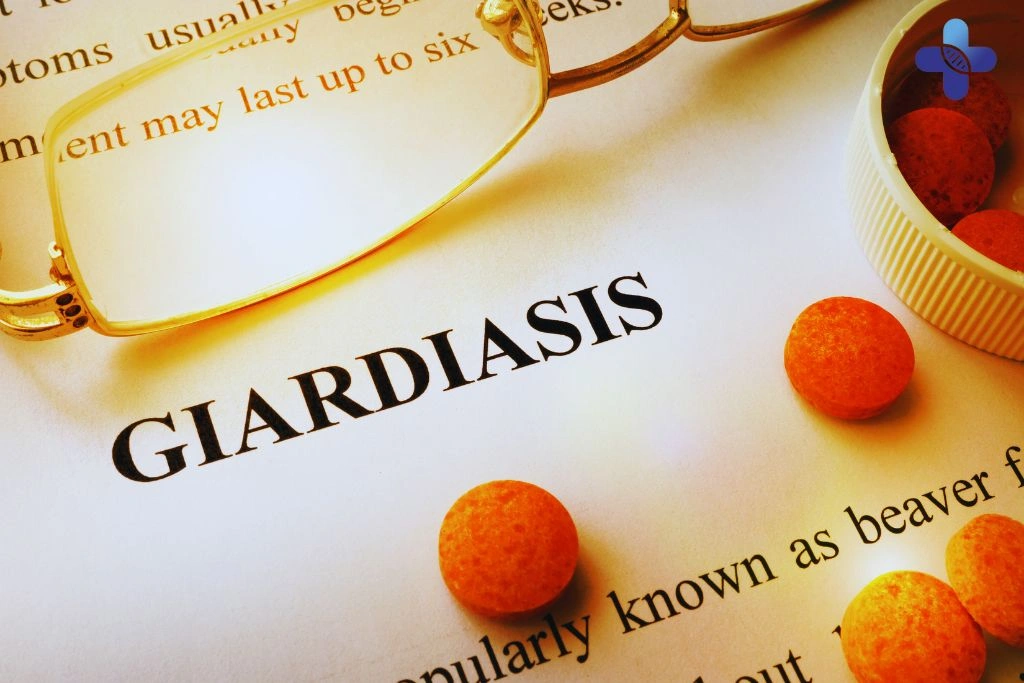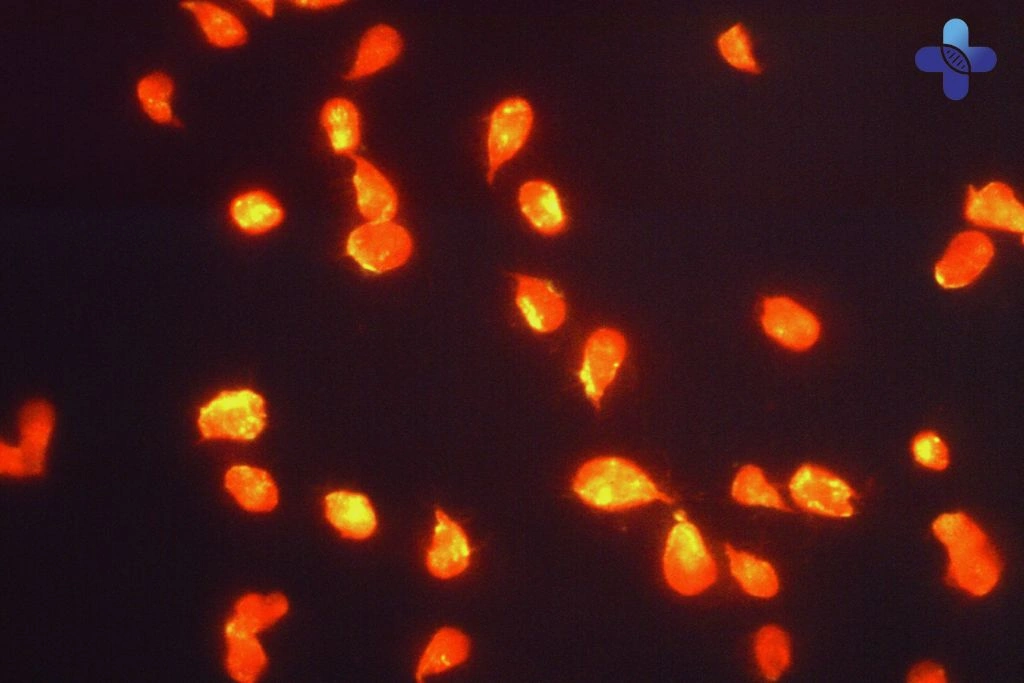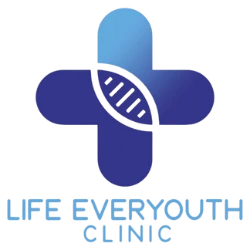Bali is a dream destination for travelers, offering stunning beaches, lush landscapes, and vibrant culture. However, amidst the paradise, travelers should be aware of potential health risks, including Giardiasis in Bali. This intestinal infection, caused by the Giardia lamblia parasite, is among the Bali common diseases that can lead to prolonged digestive discomfort if not treated promptly. Understanding its causes, symptoms, and prevention measures can help visitors stay healthy during their trip. If you experience symptoms while in Bali, seeking medical attention from Life Everyouth Clinic can provide you with an accurate diagnosis and effective treatment.

Giardiasis in Bali: Causes, Symptoms, Treatment, and Essential Prevention Tips for Travelers
Giardiasis is a common waterborne infection caused by the Giardia parasite, which spreads through contaminated food, water, or direct contact with infected surfaces. Travelers in Bali may be at risk, especially when consuming untreated water or food from unhygienic sources. Symptoms include diarrhea, stomach cramps, bloating, and nausea, which can lead to dehydration if left untreated. Proper hygiene, safe food and water consumption, and early medical intervention are key to preventing and managing giardiasis. Life Everyouth Bali provides professional diagnosis and treatment to ensure a fast and effective recovery for travelers and residents.
What is Giardiasis?
Giardiasis is an intestinal infection caused by the Giardia lamblia parasite, which primarily affects the small intestine. This condition is frequently contracted through the consumption of contaminated food or water, making it one of the diseases in Bali that travelers should be particularly cautious about. The parasite spreads when microscopic Giardia cysts are ingested, either through direct exposure to infected individuals, contaminated drinking water, or poorly sanitized food sources. Due to its highly contagious nature, proper hygiene, safe food practices, and awareness of water sources are essential in minimizing the risk of infection. If you suspect you have contracted Giardiasis, visiting Life Everyouth Clinic is crucial for prompt testing and treatment.
Symptoms of Giardiasis
Watery Diarrhea
One of the most common symptoms of Giardiasis is persistent watery diarrhea. This occurs because the parasite disrupts the normal absorption of fluids in the intestines, leading to excessive water loss. If left untreated, prolonged diarrhea can cause severe dehydration, leading to symptoms such as dizziness, dry mouth, and reduced urine output. Travelers experiencing continuous diarrhea should seek medical attention at Life Everyouth Clinic to prevent further complications and receive necessary rehydration therapy.
Abdominal Cramps and Bloating
Giardiasis often leads to abdominal discomfort, including cramps and bloating. The parasite affects digestion by interfering with the absorption of nutrients, leading to excessive gas buildup. This can cause significant discomfort and even pain in some individuals. The bloating may persist even after diarrhea subsides, making it essential to restore gut health through probiotics and proper nutrition. Life Everyouth Clinic offers probiotic recommendations and dietary guidance to help restore intestinal balance.
Nausea and Vomiting
Nausea and vomiting are also common symptoms associated with Giardiasis. The infection causes irritation in the digestive tract, leading to feelings of queasiness and an inability to keep food down. This can further contribute to dehydration and nutrient deficiencies if left untreated. Managing these symptoms requires proper hydration, a light diet, and, in severe cases, medical intervention at Life Everyouth Clinic, where doctors provide tailored treatment plans.
Fatigue and Weakness
Since Giardiasis affects nutrient absorption, it can lead to prolonged fatigue and weakness. Individuals may feel unusually tired due to the loss of essential vitamins and minerals, making daily activities difficult. Those experiencing ongoing fatigue should seek medical evaluation at Life Everyouth Clinic to ensure they receive the necessary treatment and dietary support for full recovery.
Unintentional Weight Loss
Malabsorption caused by Giardiasis can result in unintended weight loss. When the body is unable to properly absorb nutrients, it starts depleting its own energy reserves, leading to noticeable weight reduction over time. If left unchecked, this can cause additional health problems, such as vitamin deficiencies and weakened immunity. Life Everyouth Clinic provides nutritional counseling and supplementation plans to help restore lost nutrients and improve overall health.

How Does Giardiasis Spread?
Contaminated Water Sources
Drinking contaminated water is one of the primary ways Giardiasis spreads. The parasite thrives in untreated tap water, ice, rivers, lakes, and poorly filtered sources. In Bali, consuming tap water or ice from unreliable sources significantly increases the risk of infection. To prevent this, always drink bottled or properly filtered water and be cautious of ice cubes in drinks. Life Everyouth Clinic advises travelers on safe hydration practices and offers treatment for waterborne illnesses.
Unsafe Food Consumption
Giardia cysts can survive on raw and undercooked foods, making improper food handling a major transmission route. Fruits and vegetables that are not washed thoroughly may harbor the parasite, leading to infection when consumed. Travelers should prioritize eating cooked meals and only consume fresh produce from reputable sources. Life Everyouth Clinic provides dietary recommendations and testing for foodborne illnesses to ensure proper diagnosis and treatment.
Person-to-Person Transmission
Giardiasis can spread through direct contact with infected individuals, especially in cases of poor hygiene. Shared bathroom surfaces, contaminated hands, and improperly washed utensils can all contribute to transmission. This is why frequent handwashing and avoiding direct contact with contaminated objects is crucial in preventing the spread of the infection. Life Everyouth Clinic emphasizes hygiene education to help prevent further transmission of the disease.
Recreational Water Activities
Swimming in contaminated pools, lakes, or rivers can expose individuals to Giardia if they accidentally swallow infected water. Since the parasite is resistant to chlorine, even some swimming pools can pose a risk. Travelers should exercise caution when engaging in water activities and avoid ingesting water from natural bodies. Life Everyouth Clinic provides medical support for travelers exposed to waterborne parasites and other health risks.
Diagnosing and Treating Giardiasis in Bali
Stool Sample Analysis
A stool sample test is the most common diagnostic method for Giardiasis. This involves a microscopic examination of stool samples to identify Giardia cysts or trophozoites. Since the parasite may not always appear in every stool sample, multiple tests over several days may be required for an accurate diagnosis. Life Everyouth Clinic offers comprehensive stool analysis for precise identification of Giardiasis and other intestinal infections.
Rapid Antigen Tests
Rapid antigen tests are more advanced than traditional microscopic exams. These tests detect Giardia proteins in stool samples, allowing for quicker and more accurate results. This method is highly effective for confirming active infections and is available at Life Everyouth Clinic.
Polymerase Chain Reaction (PCR) Testing
PCR testing is a highly sensitive diagnostic tool used to detect Giardia DNA. It is particularly useful in cases where symptoms persist despite initial negative test results. PCR testing provides precise confirmation of the infection, ensuring appropriate treatment is administered at Life Everyouth Clinic.

Tips for Preventing Giardiasis
Stay Hydrated Safely
Drink only bottled, filtered, or boiled water while in Bali. Avoid using tap water, even for brushing your teeth, as it may contain Giardia cysts. Always check the source of ice cubes before adding them to your drinks.
Practice Good Hand Hygiene
Wash your hands regularly with soap and clean water, especially before eating and after using the restroom. If clean water and soap are unavailable, use an alcohol-based hand sanitizer.
Eat Safely
Eat for freshly cooked meals from reputable restaurants. Avoid raw or undercooked food, especially seafood and salads that may have been washed with untreated water. When consuming fruits, peel them yourself to reduce the risk of contamination.
Be Cautious with Street Food
While Bali offers delicious street food, ensure that vendors maintain proper hygiene. Stick to stalls that prepare food fresh upon order and avoid those with poor sanitary conditions.
Swim Smart
Avoid swallowing water while swimming in pools, lakes, or rivers, as Giardia cysts can survive in untreated water sources. Be especially cautious in public pools or natural water bodies.
Seek Medical Attention Promptly
If you experience symptoms such as persistent diarrhea, nausea, or abdominal cramps, visit Life Everyouth Bali immediately for a proper diagnosis and treatment. Early intervention can prevent prolonged illness and complications.

Conclusion of Giardiasis in Bali: Symptoms and Prevention
Giardiasis is a preventable yet common disease in Bali, particularly among travelers. By practicing good hygiene and being mindful of food and water consumption, you can minimize the risk of infection. If symptoms persist, seeking medical care from Life Everyouth Bali is highly recommended, as the clinic provides expert diagnosis and treatment for travelers and residents alike. Life Everyouth Bali ensures that every patient receives personalized care to recover fully and continue enjoying their time in Bali.
Giardiasis is a preventable yet common disease in Bali, particularly among travelers. By practicing good hygiene and being mindful of food and water consumption, you can minimize the risk of infection. If symptoms persist, seeking medical care from Life Everyouth Bali is highly recommended, as the clinic provides expert diagnosis and treatment for travelers and residents alike. Life Everyouth Bali ensures that every patient receives personalized care to recover fully and continue enjoying their time in Bali.
Frequently Asked Questions (FAQs) of Giardiasis in Bali: Symptoms and Prevention
How long does it take to recover from Giardiasis?
Recovery from Giardiasis varies depending on the severity of the infection and whether medical treatment is sought. With appropriate antiparasitic medication prescribed at Life Everyouth Bali, most patients experience significant symptom relief within a few days. However, some individuals may experience lingering digestive issues such as bloating or mild diarrhea for several weeks as the gut heals. Proper hydration, probiotics, and a balanced diet can speed up recovery.
Can Giardiasis resolve on its own without treatment?
While some people may recover from Giardiasis without medication, the infection can last for weeks or even months, leading to dehydration and malnutrition. Without treatment, symptoms can persist and increase the risk of spreading the infection to others. Seeking medical attention at Life Everyouth Bali ensures a faster and more comfortable recovery with appropriate medication and hydration support.
Is Giardiasis contagious?
Yes, Giardiasis is highly contagious and spreads through direct contact, contaminated water, food, and surfaces. The parasite is transmitted through fecal matter, making hand hygiene and sanitation critical in preventing infection. At Life Everyouth Bali, we emphasize proper hygiene education and provide necessary treatments to reduce transmission risks.
Can children get Giardiasis more easily than adults?
Children are particularly susceptible to Giardiasis due to frequent hand-to-mouth activity, exposure to shared toys, and a developing immune system. Schools, daycare centers, and communal play areas can increase their risk of infection. If your child exhibits prolonged diarrhea, stomach pain, or fatigue, visit Life Everyouth Bali for specialized pediatric care and treatment.
What happens if Giardiasis is left untreated?
If left untreated, Giardiasis can lead to chronic diarrhea, severe dehydration, weight loss, and long-term digestive issues such as irritable bowel syndrome (IBS). Malabsorption of essential nutrients may also cause deficiencies in vitamins and minerals, weakening the immune system. To prevent complications, visit Life Everyouth Bali for an accurate diagnosis and appropriate treatment.
Can I drink tap water in Bali if I boil it?
Boiling tap water for at least one minute effectively kills Giardia cysts, making it safe for consumption. However, for travelers, the safest option is to drink bottled or properly filtered water to avoid any risk of contamination. Life Everyouth Bali advises travelers on safe hydration practices and provides treatment for waterborne illnesses if needed.
Can Giardiasis cause long-term health complications?
For most individuals, symptoms resolve after treatment. However, some may experience lingering gastrointestinal issues such as lactose intolerance, prolonged bloating, or IBS due to gut irritation. Life Everyouth Bali offers post-recovery care, including probiotic recommendations and nutritional counseling, to restore digestive health and prevent long-term complications.
How can I ensure my food is safe while traveling in Bali?
To minimize the risk of Giardiasis, travelers should only consume well-cooked meals from reputable establishments, avoid raw or undercooked food, and wash fruits and vegetables with clean water. Avoid eating from street vendors that do not appear to follow proper hygiene practices. If you develop symptoms after eating contaminated food, seek medical assistance at Life Everyouth Bali.
Can Giardiasis be prevented with vaccines?
Currently, there is no vaccine available for Giardiasis. Prevention relies on practicing strict hygiene, consuming safe food and water, and avoiding close contact with contaminated surfaces or individuals. Life Everyouth Bali provides health consultations to help travelers take preventive measures against waterborne and foodborne diseases.
Where can I get tested and treated for Giardiasis in Bali?
If you suspect you have Giardiasis, visit Life Everyouth Bali for comprehensive testing and treatment. The clinic offers rapid antigen tests, PCR testing, and personalized treatment plans to ensure a quick and effective recovery. Our team of healthcare professionals is dedicated to helping travelers and residents recover from gastrointestinal infections with expert care and the latest medical treatments.

